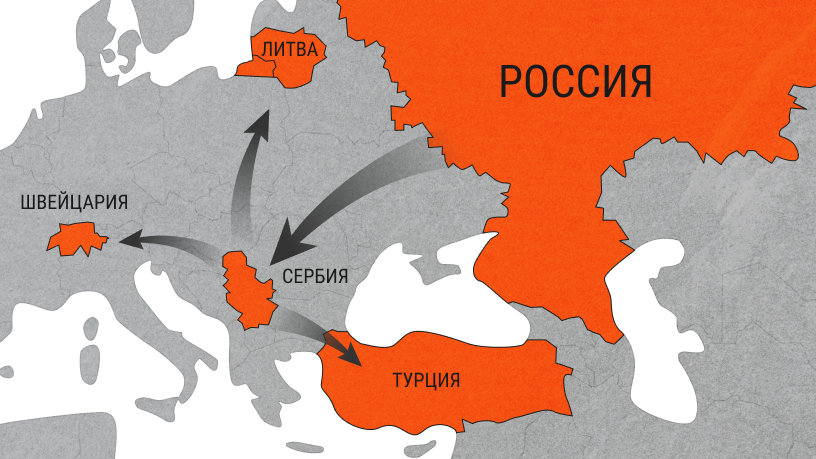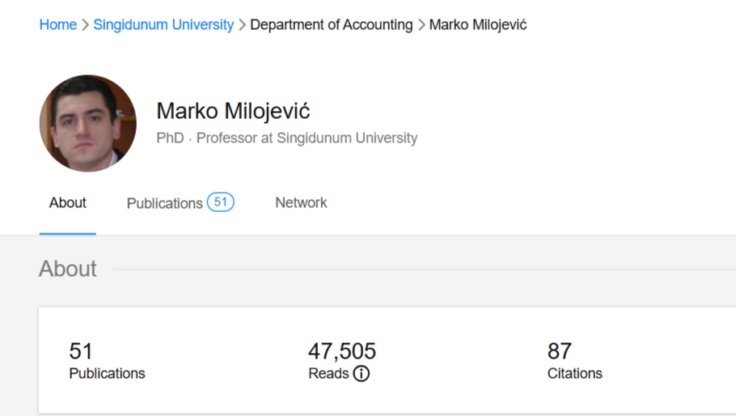
T-invariant, co-founder of Dissernet Andrey Rostovtsev and community project coordinator Larisa Melikhova continue their “Plagiarism Navigator”. Through carefully selected cases of international scientific plagiarism, we reveal how academic activity is being faked on a planetary scale. To tackle this challenge, we employ specially trained NLP language models developed in collaboration with linguists from the University of Helsinki and University of Oslo. In this third installment, we investigate the story of a prominent Serbian scholar who engaged in both purchased co-authorship and blatant plagiarism.
Previously in Plagiarism Navigator
Episode 1: China-Ukraine-Poland – The story of a Chinese scholar who defended a dissertation in Kharkiv, cobbled together from Russian-language works translated into Ukrainian.
Episode 2: Russia-Tajikistan-Iran – The case of Iranian scholars obtained degrees in Tajikistan (2011–2013) under Russia’s VAK system.
The subject of today’s feature is Marko Milojević, a professor at Singidunum University in Belgrade, Serbia. Milojević holds a PhD in Economics and is the co-author of six books and 51 articles published in various international journals. He has also presented twenty papers at academic conferences in Serbia and abroad.
In 2021, Dissernet uncovered that two articles co-authored by Milojević with researchers from Bulgaria, Russia, and Poland had been purchased through the notorious Moscow-based “International Publisher” (IP) platform. Between 2019 and 2022, Dissernet identified and publicly exposed approximately 500 articles acquired via IP. The buyers included around 700 authors—600 based in Russia and 100 from other countries, primarily China and post-Soviet states.
T-invariant has previously reported on the Russian company “International Publisher”, which specializes in fabricating fraudulent academic articles and placing them—for a fee—in major foreign journals. This “publication mill” operates out of central Moscow’s business district and openly solicits clients to purchase co-authorship slots, guaranteeing 100% placement in journals indexed by Web of Science and Scopus. For further details click here.
The First Purchased Publication
The article “Households’ Energy Autonomy: Risks or Benefits for a State?“ was published in the Swiss journal Energies, produced by MDPI (Multidisciplinary Digital Publishing Institute), a major open-access scientific publisher. In 2021, Dissernet identified nine publications in this journal that had been purchased through IP.
The pricing structure of IP reveals that the cost of publication depends on the co-author’s proximity to the top of the list. In some cases, one might assume that the first co-author was the actual writer of the paper and simply sought to monetize it by selling secondary co-authorship slots. However, this hypothesis does not hold in the present case: at the time of the journal’s offer, the first co-authorship slot remained available—and was later claimed by Marko Milojević, who paid 180,400 rubles for the placement. The second co-author (139,400 rubles) was a Polish researcher from Częstochowa University, while the third (123,000 rubles) was a colleague of Milojević’s at Singidunum University. The fourth (114,800 rubles) was a dentist from Sechenov University—who, incidentally, had three purchased publications to their name. Speaking of Sechenov University, it remains unclear why this institution has emerged as the leading Russian university in terms of articles bought through IP.
Naturally, articles purchased through the publication marketplace typically feature co-authors from disparate locations who share no prior collaborative work and were likely unaware of each other’s existence before their names appeared together. This pattern holds true for Milojević’s second purchased publication as well.
The Second Purchased Publication
The article “Mathematical Interpretation of Global Competition between Payment Systems“ was published in the predatory Turkish journal “Eurasia Journal of Mathematics, Science and Technology Education”. Among the four co-authors listed alongside Milojević there were two Russian “researchers” from Samara and Stavropol—veterans of purchasing co-authorship through IP (with 16 and 8 bought publications, respectively), a Polish professor (4 publications acquired via IP) and a Chinese.

In 2023, Marko Milojević co-authored the article “RMB Resilience Strategies to Drive Business Performance Amid the Global Crisis“ with Dong Hao (China) and Yingrong Zheng (South Korea) in the Lithuanian scientific “Journal of Business Economics and Management”. The paper contains extensive improper borrowings from an English-translated version of a Russian-language article originally written by two third-year students from St. Petersburg and published in “Voprosy Studencheskoy Nauki” (“Student Science Issues”).
Notably, the English version differs from the original student work primarily through the addition of numerous citations to Chinese researchers—a hallmark tactic for artificially inflating citation metrics. This practice, frequently observed in questionable publications, allows authors (often with undisclosed incentives) to boost their colleagues’ Hirsch index through reciprocal citations.
For Yingrong Zheng, this is not the first instance of “collaboration” with Russian academics: in 2022, he published another purchased paper (acquired via IP) alongside four Russian professors from Moscow and St. Petersburg universities. Moreover, Zheng and his Chinese co-author Dong Hao share multiple joint publications, including at least one retracted 2023 paper withdrawn by the publishing journal itself.
The Lithuanian journal that published this translated plagiarism of student work may yet rectify its error: we have contacted the editor-in-chief urging retraction of Milojević’s article (no response as of this writing). As for the previously mentioned journals—”Energies” and “Eurasia Journal of Mathematics, Science and Technology Education”—which appear complicit in IP’s operations, engaging with them seems futile. However, filing formal complaints with Scopus (which indexes both journals) and Web of Science (listing “Energies”) remains a viable recourse.